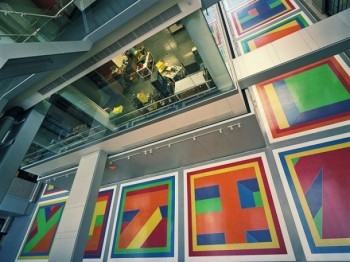
Arts Across Campus
Arts.mit.edu is your portal to all of the arts at MIT. Here are links to other MIT arts websites.

Arts.mit.edu is your portal to all of the arts at MIT. Here are links to other MIT arts websites.
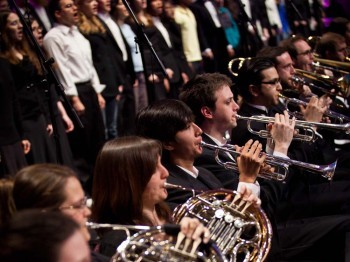
In addition to these faculty-led performance groups, MIT boasts hundreds of student interest groups in dance, film, literary arts, music, theater and other interdisciplinary forms. From a cappella singing to improvisational comedy, origami folding to Bhangra dancing, students can choose from a diverse and lively array of arts activities on campus.
Visit theater.mit.edu for more information about student-led theater groups.
For a complete list of student-led interest groups, visit the MIT Association of Student Activities (ASA).
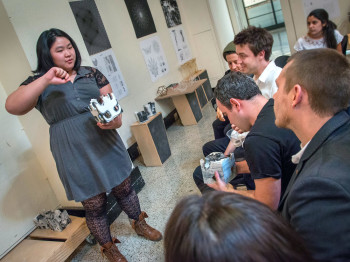
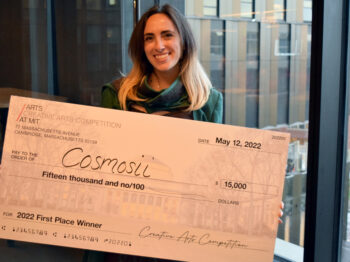
Workshops + Mentorship + Compete for $15,000 Formerly known as the Creative Arts Competition, the MIT Arts Startup Incubator was established in 2013 to foster arts-focused ventures at the Institute. The $15,000 prize is awarded to help launch the winning … Continued
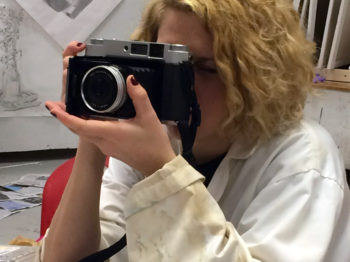
MIT Arts Studios
Stratton Student Center, MIT Building W20-424 (fourth floor)
84 Massachusetts Avenue, Cambridge, MA 02139
617-253-7019
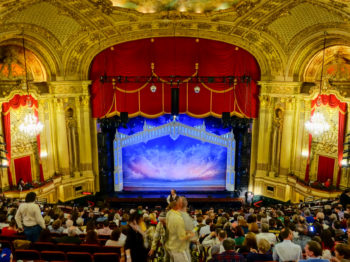
The Council for the Arts at MIT underwrites MIT’s memberships at many Boston area cultural organizations, including the Museum of Fine Arts (MFA), Institute of Contemporary Art, Boston (ICA), and the Isabella Stewart Gardner Museum. Please see below for more detailed information.
The Council also helps underwrite discounted student tickets to the Boston Ballet, and provides students with information about discounted tickets to performances by several area ensembles. The Bobko BSO Ticket Fund, created by Philip and Barbara Bobko, provides discounted student tickets to BSO performances, and is administered by CAMIT.
Eligibility for the Arts Access program is restricted to current MIT students (with valid MIT Student ID) and faculty/staff (with valid MIT Employee ID). Other MIT affiliates (with Spouse ID, Alumni ID, Affiliate ID, etc.) can explore discounted ticket options available through the MIT Activities Committee (MITAC).
MIT Lincoln Lab employees: to take advantage of MIT’s University Memberships with the MFA, the ICA, and the Isabella Stewart Gardner Museum, please request an MIT Employee ID card through the Atlas Service Center.
CAMIT is unable to make any representations that these arts organizations are safe to visit. Please ensure you understand each arts organization’s access procedures, as well as MIT’s community expectations regarding COVID-19.
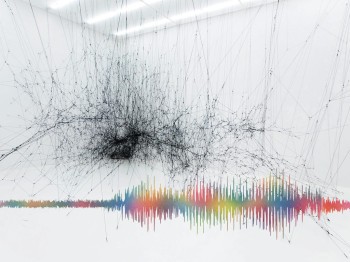
SEEING / SOUNDING / SENSING A symposium hosted by the MIT Center for Art, Science & Technology (CAST) September 26-27, 2014 MIT Media Lab, 6th Floor 75 Amherst Street Cambridge, MA 02139 Art, science and technology are ways of knowing … Continued
September 26 – 27, 2014
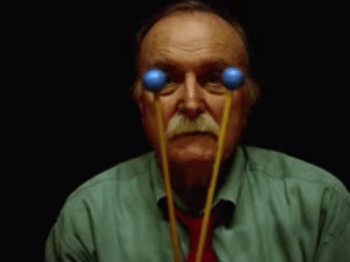
For the 2014-15 season, MIT inaugurates the innovative annual performance series MIT Sounding, curated by Evan Ziporyn, featuring rare live performances by new music pioneers Terry Riley and Alvin Lucier, early music denizens Boston Camerata, and the Grammy Award-winning ensemble Roomful of Teeth.
The series includes world and US premieres by Ziporyn, Elena Ruehr, Christine Southworth, Arnold Dreyblatt, Gyan Riley and others.

September 26-27, 2014
MIT Media Lab, 6th Floor
75 Amherst Street, Cambridge, MA 02139
Art, science, and technology are ways of knowing and changing the world. These disciplines frequently draw from one another, yet their devoted practitioners rarely have the opportunity for high-level intellectual and cultural exchange. “Seeing / Sounding / Sensing” was an intensive two-day event at MIT that invited creative artists to join with philosophers, cognitive neuroscientists, anthropologists, historians and scholars from a range of disciplines in an open-ended discussion about knowledge production. The two-fold goal was to challenge each domain’s conventional certainty about “what is known,” “how we know it,” or “how we can know more” and to stimulate new issues for possible cross-disciplinary scholarship in the future.
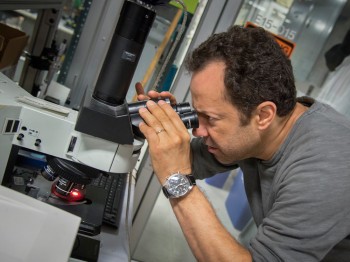
The MIT Center for Art, Science & Technology (CAST) Visiting Artists program is distinctive for its emphasis on the research and development phase of artistic work. In addition to presenting new work, residencies embed artists in the ongoing research and teaching at MIT, where scientists and engineers are open to artists’ speculative and hands-on way of working. The program hosts artists from a wide range of visual and performing arts disciplines each academic year, exposing students to the creative process and fostering cross-fertilization among disciplines.
The Dasha Zhukova Distinguished Visiting Artist Program, launched in Fall 2016, creates the opportunity for artists to shape new creative projects over a period of two years of sustained, in-depth research and development.
Visiting Artist Collaborations are supported by the Ida Ely Rubin Artists in Residence Fund, Abramowitz Memorial Lectureship Fund, and the Alan W. Katzenstein (1942) Memorial Fund.
Read more about the programs that CAST has sponsored in the 2012-14 Program Report (PDF), 2014-15 Program Report (PDF), 2015-16 Program Report (PDF), 2016-18 Program Report (PDF), 2019-20 Program Report (PDF), and 2021-22 Program Report (PDF).
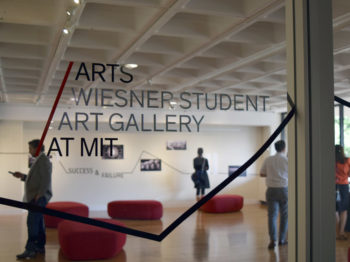
MIT Wiesner Student Art Gallery A space for students to exhibit their artistic endeavors, both academic and co-curricular Harold and Arlene Schnitzer Prize in the Visual Arts Exhibition Featuring work by the 2024 Schnitzer Prize Recipients: Dexter Callender III (Graduate … Continued
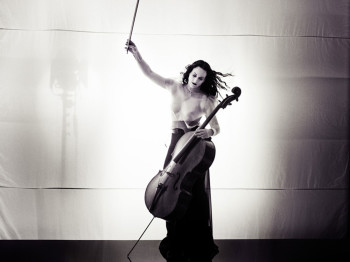
For the 2015-16 season, MIT continues the innovative annual performance series MIT Sounding which blurs the boundaries between contemporary and world music. Curated by Evan Ziporyn, Faculty Director of the MIT Center for Art, Science & Technology, the 2015-16 season of MIT Sounding’s diverse offerings run the gamut, from Bach to Led Zeppelin and Morton Feldman, and from acoustic recitals to electronic manipulations of the human voice. “We sought out artists who are reinventing performance and presentation,” Ziporyn says. “We selected people who are innovating not just through new works and technologies but by reexamining—and reframing—our notions of genre and repertoire, translating between mediums, or radicalizing the performance experience itself.”
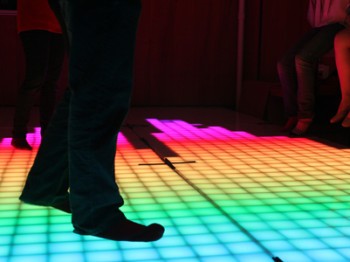
MIT students create computer-controlled disco dance floor for annual Bad Ideas Ball.
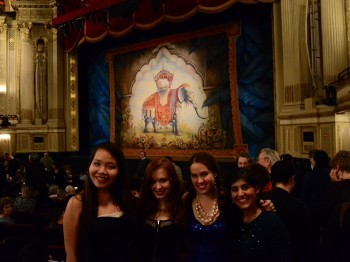
Established in 1998, the MIT Arts Scholars Program brings together students who are passionate about exploring the diverse array of arts available at MIT and in the Boston area, and interacting with fellow students, faculty artists and other experts in the art world. The program is structured around monthly excursions or workshops, with an expert in the relevant field of art in attendance.